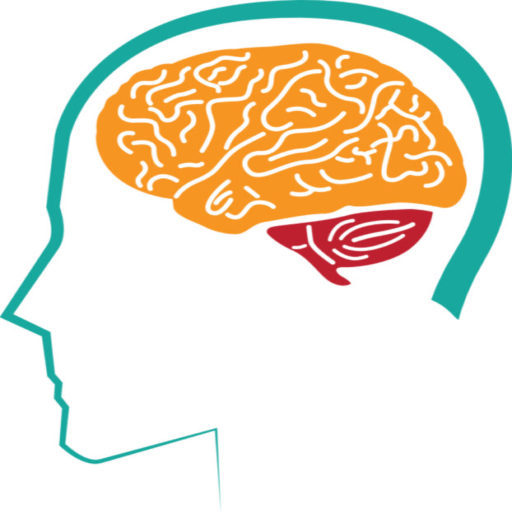Introduction
Misunderstandings about mental health persist despite increased awareness and education efforts. These myths not only contribute to stigma but also impact how individuals perceive and seek help for mental health conditions. In this article, we will debunk common mental health myths, shed light on the truth about treatment and recovery, and explore how misinformation affects individuals and society.
Myth 1: Mental Illness Is Rare
Fact: Mental illness is common, affecting millions of people worldwide. According to the World Health Organization (WHO), one in four people will experience a mental health issue at some point in their lives. Mental health conditions are not isolated incidents but part of the human experience.
Myth 2: Mental Illness Is a Sign of Weakness
Fact: Mental illness is not a reflection of personal weakness or a lack of character. It is a complex interplay of genetic, biological, environmental, and psychological factors. People from all walks of life can experience mental health challenges.
Myth 3: You Can “Snap Out” of Mental Illness
Fact: Mental health conditions are not a matter of willpower or mindset. While individuals can learn coping strategies and seek treatment, overcoming a mental health condition is not as simple as “snapping out of it.” It requires professional help, support, and time.
Myth 4: Seeking Help Is a Sign of Failure
Fact: Seeking help for mental health issues is a sign of strength, not failure. Just as individuals seek medical assistance for physical ailments, it is essential to seek professional help for mental health concerns. Treatment can be highly effective and lead to recovery.
Myth 5: Medication Is the Only Treatment
Fact: While medication can be a crucial part of mental health treatment, it is not the only option. Psychotherapy, lifestyle changes, and support from loved ones also play significant roles in recovery. Treatment plans are tailored to individual needs.
Myth 6: People with Mental Illness Are Violent
Fact: Individuals with mental health conditions are more likely to be victims of violence than perpetrators. Most people with mental illness are non-violent and pose no threat to others. Media portrayals often exaggerate this myth, perpetuating harmful stereotypes.
Myth 7: Once You’re Better, You Don’t Need Help Anymore
Fact: Mental health is an ongoing journey. Recovery is not a one-time event but a continuous process. Just as individuals with chronic physical conditions manage their health, people with mental illness may require ongoing support and treatment.
Myth 8: Mental Health Conditions Are Always Visible
Fact: Many mental health conditions do not have visible symptoms, making them less apparent to others. Just because someone appears fine on the outside does not mean they are not struggling internally. Stigma can discourage people from discussing their mental health openly.
The Truth About Treatment and Recovery
1. Recovery Is Possible
Recovery from mental illness is not only possible but common. Many individuals successfully manage their conditions and lead fulfilling lives. Treatment, support, and self-care are integral to the recovery process.
2. Treatment Is Personalized
Mental health treatment is not one-size-fits-all. It is tailored to each individual’s unique needs and preferences. Treatment plans may include therapy, medication, lifestyle changes, or a combination of these approaches.
3. Support Is Crucial
Social support from friends, family, and support groups can significantly impact recovery. Encouraging and empathetic relationships provide a safety net during challenging times.
4. Early Intervention Is Key
Identifying and addressing mental health issues early can lead to better outcomes. Timely intervention can prevent symptoms from worsening and help individuals regain stability.
5. Self-Care Is Vital
Self-care practices, such as maintaining a healthy lifestyle, managing stress, and practicing mindfulness, are essential components of mental health maintenance and recovery.
How Misinformation Affects Individuals and Society
1. Delayed Treatment
Misconceptions about mental health can lead individuals to delay seeking help. This delay can result in prolonged suffering and may worsen symptoms.
2. Stigmatization
Misinformation perpetuates stigma, leading to discrimination and exclusion of individuals with mental health conditions. Stigma can deter people from disclosing their struggles or seeking support.
3. Reduced Quality of Life
Believing in mental health myths can limit one’s understanding of available resources and support. This can lead to a reduced quality of life for those affected by mental illness.
4. Policy and Healthcare Disparities
Misconceptions about mental health can influence public policy and healthcare systems. Inaccurate beliefs may lead to inadequate funding and services for mental health care.
5. Negative Impact on Families
Families may also be affected by mental health myths. Misunderstanding can strain relationships and prevent loved ones from providing appropriate support.
Conclusion
Debunking mental health myths is crucial for promoting understanding, empathy, and effective treatment. Common misconceptions about the prevalence of mental illness, its causes, and the nature of recovery perpetuate stigma and discourage individuals from seeking help.
Understanding that mental illness is common, not a sign of weakness, and treatable can encourage individuals to seek timely support. Recognizing the importance of personalized treatment, social support, and self-care in the recovery process empowers individuals on their mental health journey.
Misinformation about mental health affects not only individuals but also society as a whole. It can lead to delayed treatment, stigmatization, reduced quality of life, disparities in healthcare, and strain on families. As advocates for mental health awareness, we can challenge these myths, provide accurate information, and create a more compassionate and inclusive society—one where individuals living with mental illness are understood, supported, and empowered to seek help and lead fulfilling lives.
References
- World Health Organization. (2021). Mental disorders. https://www.who.int/news-room/fact-sheets/detail/mental-disorders
- Mental Health Myths and Facts. (n.d.). National Alliance on Mental Illness (NAMI). https://www.nami.org/learn-more/myths-facts
- Corrigan, P. W., Druss, B. G., & Perlick, D. A. (2014). The Impact of Mental Illness Stigma on Seeking and Participating in Mental Health Care. Psychological Science in the Public Interest, 15(2), 37-70. https://doi.org/10.1177/1529100614531398

